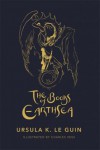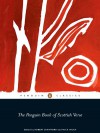Arbie's Unoriginally Titled Book Blog
It's a blog! Mainly of book reviews.
Currently reading
The Queen of Cornwall, Thomas Hardy

I stumbled across this short one act play in a 2nd Hand store. It wasn't the edition shown here but instead, the final volume of a uniform edition of Hardy's Complete Works, printed in 1931. It also contains all three parts of Hardy's giant 19 act Napoleonic drama, The Dynasts, which I've reviewed separately.
Hardy prefaces the play with a note explaining that it is intended for performance by Mummers, a Wessex traditional mode of amateur performance in streets or barns, though it could just as well be staged in a traditional theatre. This is just one more demonstration of Hardy's love of the west of England and deep knowledge of its people and customs.
The play itself is also set in the West of England - as far west as you can get, in fact, and is yet one more re-telling of that very famous and oft retold story of Tristram and Iseult. (Malory, Chaucer and Shakespeare have perhaps the most famous versions.) Hardy deftly cuts the story down to its climactic ending whilst still working in enough of the background to make the whole thing comprehensible. The result is a little poetic gem of a play.
Readers of Hardy's novels may wonder what an Arthurian tale is doing amongst his works? Seems hardly (geddit?) to fit with the social criticism of those great books. But look closer; Hardy was interested in history and folktale as evidenced by The Trumpet Major and several of his short stories e.g. The Withered Arm, as well as the Napoleonic epic, The Dynasts already referred to. Combine this knowledge with the Wessex setting of this Arthurian story and the nature of it and it's not much of a surprise at all.
What do I mean by the nature of the story? Well, it's a tale of frustrated lovers trapped in unhappy marriages... Suddenly the whole thing makes complete sense!
If you are a Hardy fan, seek this out.











 5
5
 4
4